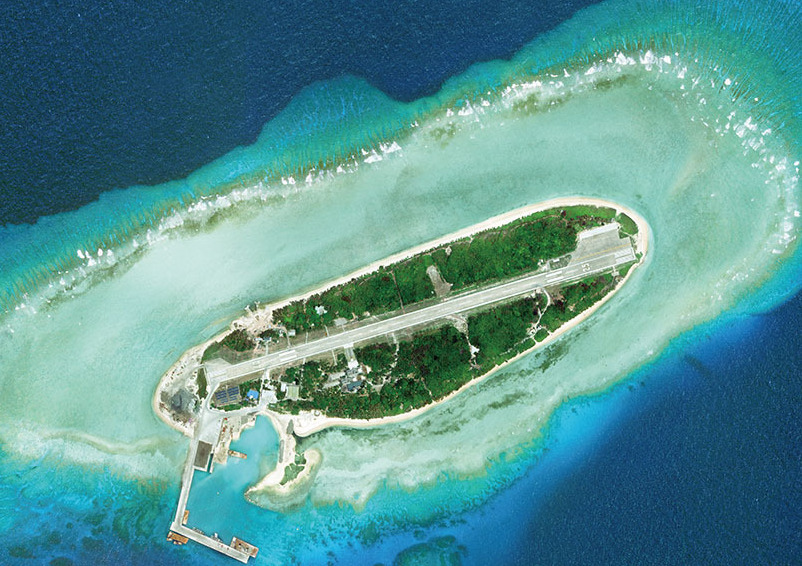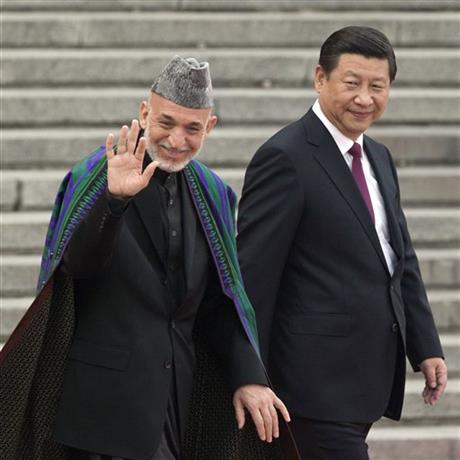How the courts attempt to reel in a giant have affected Taiwan
As collateral in the pursuit of preserving international law, the legacy of The Hague’s Permanent Court of Arbitration may well have its most significant impact on Taiwan. A free-market liberal democracy, Taiwan’s catch-22 sovereignty status has once again been pushed under the waves by the international community when The Hague declared that Taiping does not qualify as an island.
The July 12, 2016 ruling by the international court on China’s actions and claims in the South China Sea – the building of artificial islands and use of force to control key fishing grounds – is important to the dispute’s overall narrative. Based on standing international law, it is clear that China’s actions are an affront to those agreements and understandings.
Ultimately, declarations by the international community won’t change the situation, as the court is not able to police the dominant Asia-Pacific power. Taiwan is, however, no giant; unrecognized by the United Nations, it lacks legal standing as an independent state and is recognized as a part of China in court documents. One of many claimants to the resource-rich and strategically important South China Sea, Taiwan holds the largest of the Spratly Islands in the disputed sea: Taiping Island.
114 acres, Taiping Island features natural vegetation, a small airfield, a dock, and facilities including housing for around 180 coast guard personnel as well as medical equipment. Taipei claims the island has several wells for fresh water and supports a small farm including animals and crops.
According to Article of 121 of the United Nations Convention on the Law of the Sea (UNCLOS) an island is defined as:
-
An island is a naturally formed area of land, surrounded by water, which is above water at high tide;
-
Rocks which cannot sustain human habitation or economic life of their own shall have no exclusive economic zone or continental shelf.
Given that other countries are claiming Exclusive Economic Zones (EEZ) for similarly small islands, like the United States EEZ claims for Midway and Bakers Islands, Taiwan’s claim to Taiping island should not be up for dispute. The Hague’s ruling that Taiping does not qualify as an island, and is thus not suitable for an exclusive economic zone, further erodes Taiwan’s territorial claims and standing.

Upset, but not with China
The court’s refusal to recognize Taiwan as an independent, albeit contested, state and its ruling on Taiping Island’s status put the government in an awkward position. It is difficult to contest the ruling of a respected institution of the international community, in which Taiwan seeks greater participation while maintaining an ambiguous definition of its sovereignty so as not to anger Beijing. The situation leaves Taiwan with no opportunities for recourse but muted press releases.
There is certainly a sense of irony that Taiwan, a de facto state that maintains a cooperative approach to competing territorial claims, has suffered as a result of Beijing’s aggressive policies of muscling competing nations out of contested waters.
Just last year, on November 5, 2015, the Philippines and Taiwan finalized the Agreement Concerning the Facilitation of Cooperation on Law Enforcement in Fisheries Matters. The agreement was prompted after hostilities resulting in the death of a Taiwanese fisherman over territorial claims between Taiwan and the Philippines two years before.
The resolution of the issue, prior to the court’s ruling, is important in illustrating Taiwan’s commitment to a conciliatory approach to matters of overlapping claims, mitigating the court’s concerns that Taiwan would try to prevent the Philippines access to the region surrounding Taiping Island. A similar agreement was also reached with Japan on April 10, 2013 concerning fishing in the East China Sea.
Protecting upright international citizens
The court’s ruling, which has already been ignored by China, risks further damage by pushing Taiwan to take more assertive actions to secure its claim. Angry Taiwanese citizens have been calling for the government to deploy the navy to fortify the region that has been patrolled exclusively by the coast guard. At the same time, a group of Taiwanese fishermen landed on Taiping to protest the court’s ruling.
A riled populace in Taiwan is certainly a minor issue compared to China’s heated response and subsequent further militarization of the region. Nonetheless, pressure by citizens to add to the mix of forces already jockeying for claims risks further exasperating regional tensions.
Protecting the rights of a law-abiding, de facto state threatened and excluded by China, a member of the international community currently challenging the integrity and validity of said community, should be an interest of all parties opposing Beijing’s unilateral, historical claim. By allowing Taiwan to become collateral, the ruling alienates a cooperative de facto state and forces it to defend its claims.
Given that ultimately this case was established to protect the legal rights of the Philippines under agreements of the current international legal frameworks and understandings, it is regrettable that another, the unrecognized but abiding member has been harmed in the same stroke.
Disclaimer: Any views or opinions expressed in articles are solely those of the authors and do not necessarily represent the views of the NATO Association of Canada.




